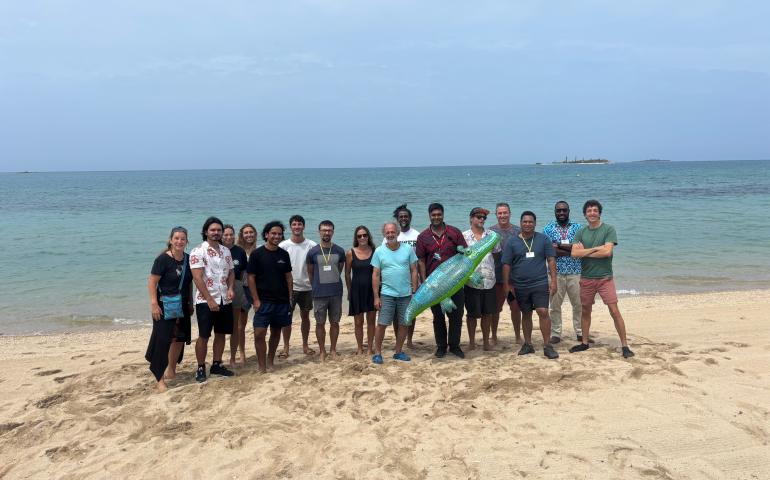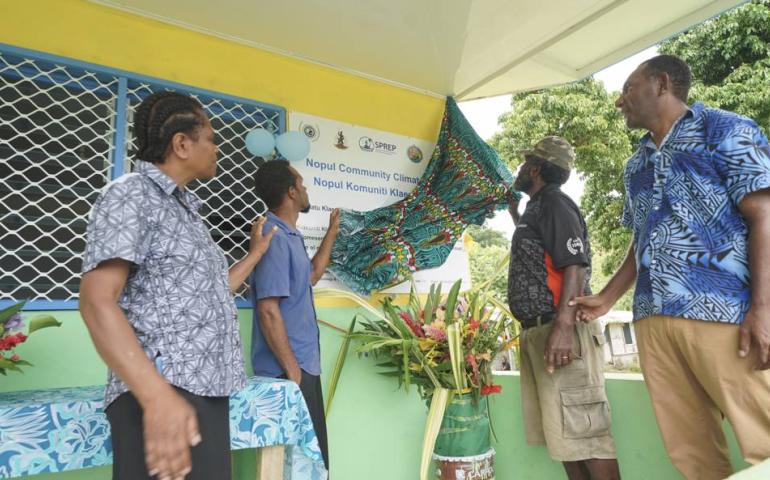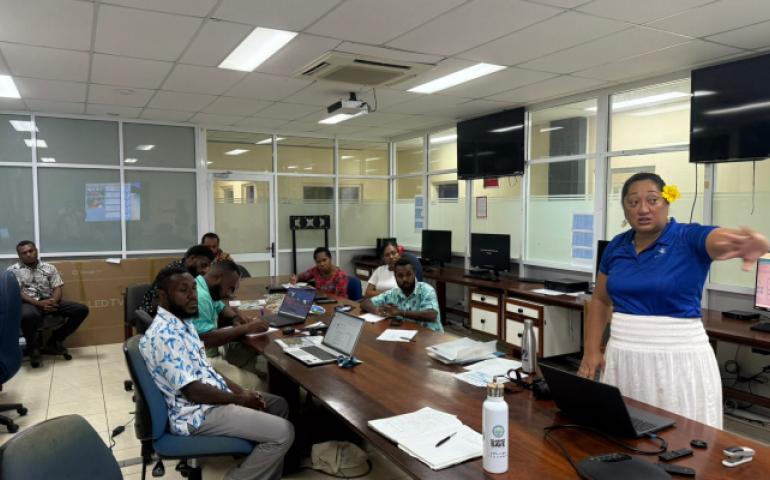New mobile app and booklet to help preserve Vanuatu’s traditional climate knowledge
For thousands of years, people in Vanuatu have observed species such as birds, marine animals and plants to help predict the weather and climate.
Today, even with the forecast and outlooks provided by Vanuatu's meteorologists and climatologists using scientific instruments and computer models, most people in Vanuatu still routinely use traditional climate knowledge to forecast weather and climate in their area.
Fusing tradition with modernity, two new resources aimed at preserving Vanuatu's traditional climate knowledge were officially launched by the Climate Information Services for Resilient Development in Vanuatu Project at Vanuatu’s National Climate Outlook Forum in Luganville, Espiritu Santo Island last week.
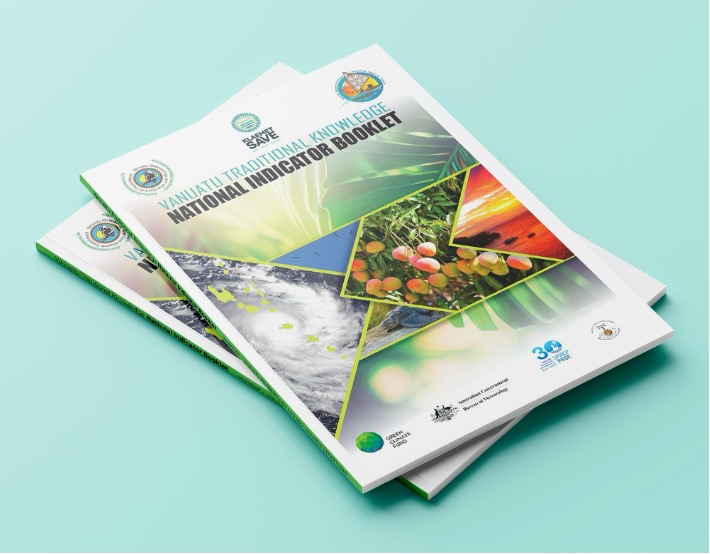
The first of these is the National Traditional Knowledge Indicators booklet, which documents 43 traditional climate knowledge indicator species commonly used by people across the Vanuatu archipelago.
The booklet’s entry for each indicator species lists its names in various languages, along with its scientific name, plus information about the actions that are traditionally believed to indicate a climate or weather event is approaching.
In Vanuatu, changes to ecosystems caused by climate change are affecting the phenology, or cyclic or seasonal patterns of animal and plant life in Vanuatu.
Because flowering times, breeding cycles and even habitats are shifting, the booklet also describes how the phenology of each species is being affected by climate change, and how this in turn impacts the traditional climate knowledge based on that species.
For some species, seasonal cycles are changing rapidly because of climate change. Keeping track of shifts in behaviours, habitats and breeding cycles is therefore essential for maintaining the relevance and usefulness of Vanuatu's traditional climate knowledge well into the future.
This is where the other new VanKIRAP traditional climate knowledge tool, the ClimateWatch mobile app, is helpful. Launched in tandem with the booklet, the app is aimed at citizen scientists, enabling anyone in Vanuatu with a smartphone and an internet connection to go out and 'spot' of traditional climate knowledge indicator species.
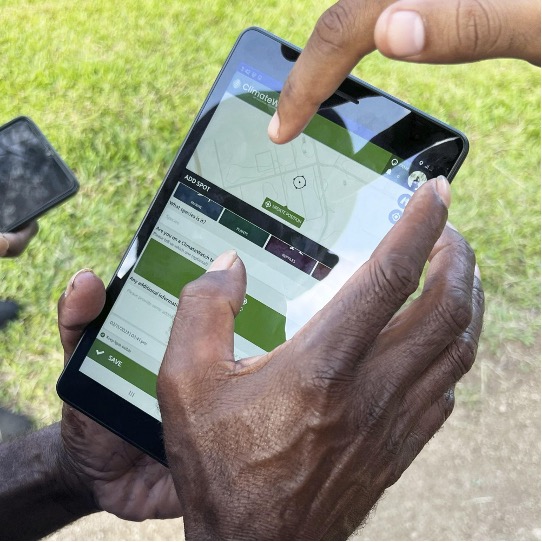
Using the app is simple: users just need to familiarise themselves with the list of key indicator species, locate an example in their area, take a photo of it, and answer a few short questions to record a ‘spot’. Once complete, each spot gets sent to the Vanuatu Meteorology and Geo-Hazards Department (VMGD) for analysis.
VMGD and its partner organisation, Australia’s Bureau of Meteorology, uses the spots to ascertain how climate change is affecting traditional knowledge indicator species. A database stored at VMGD tracks any changes to flowering times, breeding cycles and other periodic life cycle events for each species so that these changes can be analysed.
On Thursday last week, attendees of Vanuatu's National Climate Outlook Forum visited the Vanuatu Agricultural Research and Technical Centre in Suranda, Espiritu Santo Island to test out the ClimateWatch mobile app.
ClimateWatch is the first mobile app in Vanuatu’s Bislama language, and is the first citizen science app in the Pacific Islands region. The app has been developed as part of the Secretariat of the Pacific Regional Environment Programme (SPREP) managed VanKIRAP Project, in partnership with Earthwatch Australia and the Bureau of Meteorology.
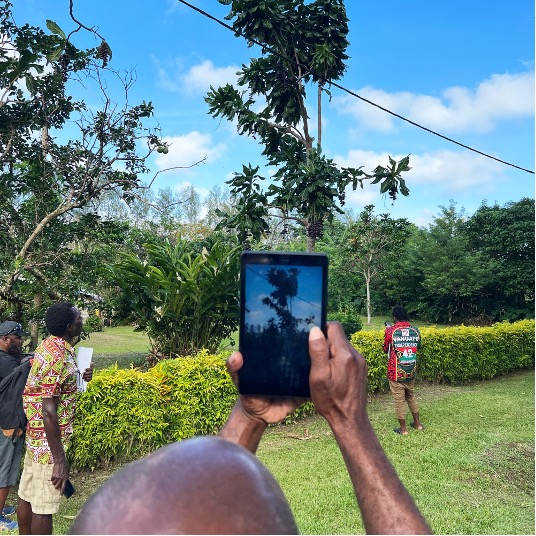
Andrew Naling, a member of VMGD’s national rainfall monitoring network from Potnarvin, Erromango Island (and National Climate Outlook Forum attendee) used the app to identify some traditional climate indicator species while on the site visit to VARTC, and is enthusiastic about its potential.
“Traditional knowledge is an integral part of our lives, but with changing lifestyles, we tend to forget it. Fortunately, the ClimateWatch app is useful in revisiting our traditional knowledge indicators for weather and climate. As technology advances, we must not forget our sustainable local ways to secure a better future for generations to come”, says Naling.
Another member of VMGD’s rainfall monitoring network, Rosemary Daniel from south-west Malekula Island, says “the fusion of technology with traditional knowledge has given us the power to share information about weather and climate in a way that is accessible to all generations. It’s an invaluable app for our smartphones.”
Sunny Seuseu, SPREP’s Acting Manager of the VanKIRAP Project, congratulated VMGD and its partners for the launch of the two new traditional climate knowledge tools: “on behalf of SPREP, I would like to extend our congratulations to Vanuatu on these significant achievements, the official launch of the National Traditional Knowledge Indicator Booklet, and the ClimateWatch mobile app, both firsts for the Pacific Islands region. SPREP is delighted to serve as the co-implementer and to offer support to the Vanuatu Meteorology and Geo-hazards Department in these crucial endeavours.”
VanKIRAP’s Traditional Knowledge Officer, Albert Willy, says that the booklet and the app both underline the continuing importance of traditional climate knowledge for Vanuatu.
“We must preserve Vanuatu’s traditional climate knowledge so that we can prepare, adapt and protect ourselves against the impacts of climate change, now and into the future”, he says.
ClimateWatch is free to download on the Google Play store for Android phones and tablets, and in the Apple App Store for iPhones and iPads.
The National Traditional Knowledge Indicators Booklet is available online at this link.
The Climate Information Services for Resilient Development in Vanuatu Project, known in Vanuatu by its Bislama name, the Vanuatu Klaemet Infomesen blong Redi, Adapt mo Protekt (VanKIRAP) project, is a five-year, USD 22 million project which aims to support climate resilient development in Vanuatu through the development, communication, and application of climate information services to benefit agriculture, fisheries, tourism, infrastructure, water sectors and communities. It is funded by the Green Climate Fund (GCF) and implemented by the Secretariat of the Pacific Regional Environment Programme (SPREP) in partnership with the Vanuatu Meteorology and Geo-hazards Department, Commonwealth Scientific and Industrial Research Organisation (CSIRO), Australian Bureau of Meteorology (BoM), and APEC Climate Centre (APCC).


